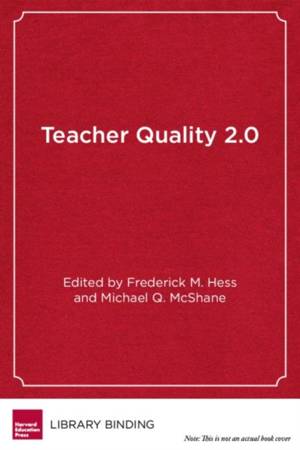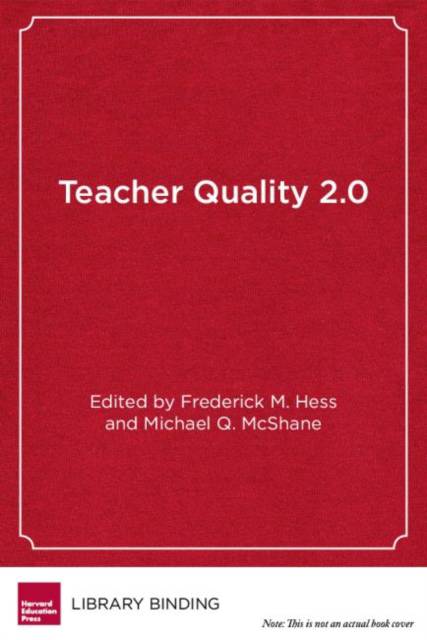
- Retrait gratuit dans votre magasin Club
- 7.000.000 titres dans notre catalogue
- Payer en toute sécurité
- Toujours un magasin près de chez vous
- Retrait gratuit dans votre magasin Club
- 7.000.0000 titres dans notre catalogue
- Payer en toute sécurité
- Toujours un magasin près de chez vous
Teacher Quality 2.0
Toward a New Era in Education Reform
99,45 €
+ 198 points
Description
Debates over teacher quality are among the most heated exchanges in the education reform arena. But while scholars and policy makers grapple with questions about teacher preparation, compensation, and evaluation, the role of teachers is changing. In schools across the country, educators are experimenting with new models for recruiting, training, and supporting teachers, and are innovating strategies for deploying their talents through differentiated roles and the use of technology. Most of the policy measures currently under consideration, however, are designed with a one-size-fits-all approach. Teacher Quality 2.0 argues that much cutting-edge work in teacher quality is happening in nontraditional environments such as online or hybrid learning, where teacher roles can be very specialized, or in charter schools that are experimenting with new approaches to staffing. The editors examine fruitful innovations taking place on the margins of the traditional education sector that promise to improve teacher quality in a more strategic way. More flexible approaches to teacher quality, the editors caution, require vigilance against backward-looking policies that "bake in" traditional assumptions about teachers' roles. The editors of this provocative volume have convened a diverse array of contributors to look ahead to explore these emerging practices and investigate how current research and policy initiatives may affect the next generation of innovation in teaching.
Spécifications
Parties prenantes
- Editeur:
Contenu
- Nombre de pages :
- 304
- Langue:
- Anglais
- Collection :
Caractéristiques
- EAN:
- 9781612507002
- Date de parution :
- 01-08-14
- Format:
- Livre relié
- Format numérique:
- Bibliotheekbinding
- Dimensions :
- 152 mm x 229 mm
- Poids :
- 512 g

Les avis
Nous publions uniquement les avis qui respectent les conditions requises. Consultez nos conditions pour les avis.





